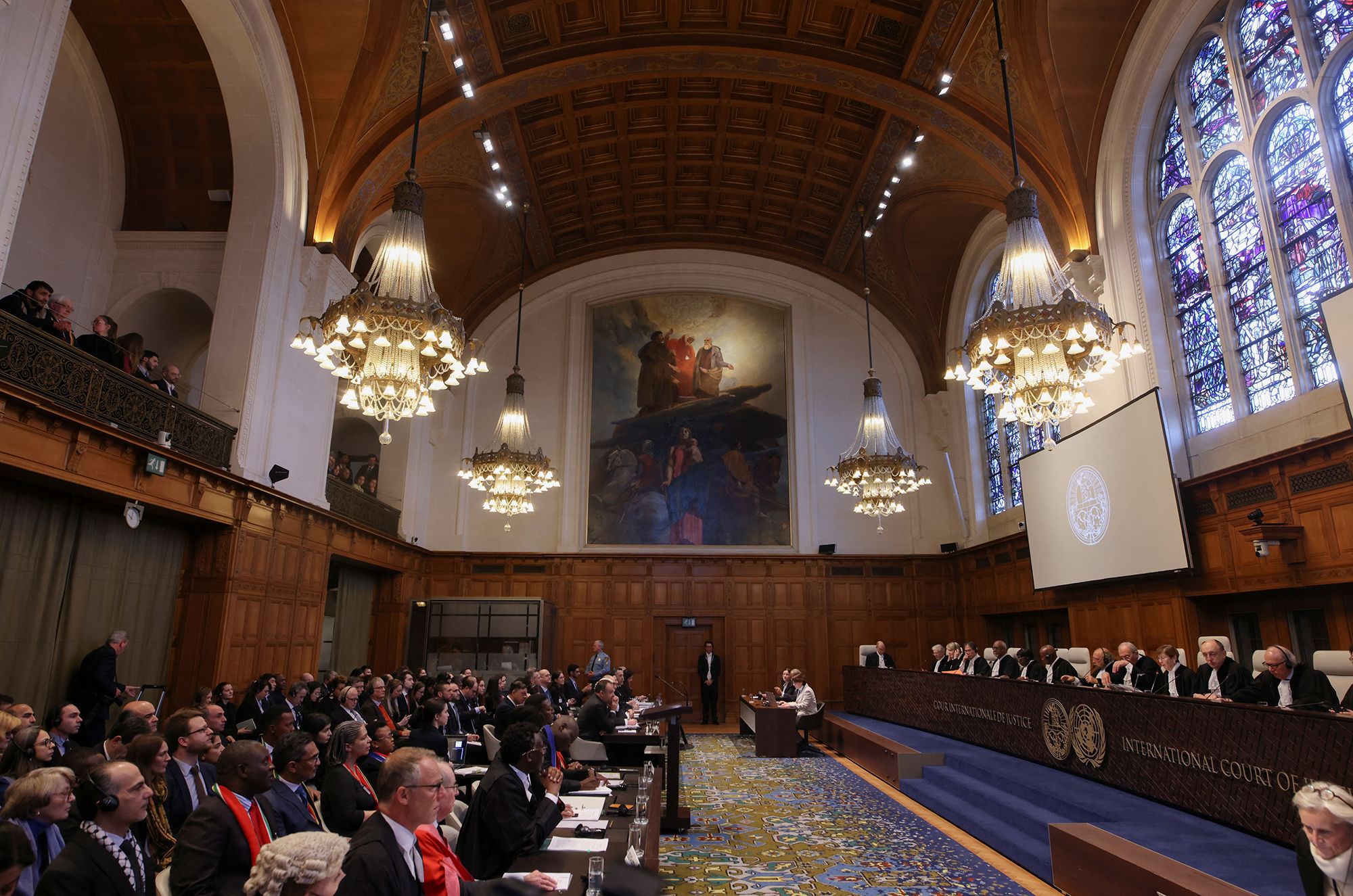The UN’s top court has heard that Israel’s aim to “destroy” Gaza originates from “the highest level of state.”
When South Africa brought its case before the International Court of Justice, accusing Israel of genocide, its attorneys made these allegations.
Additionally, South Africa requested that the court compel Israel to stop its military actions in Gaza.
Israel, which fiercely denounces the charges as “baseless,” will offer its defense on Friday.
Though it is being closely monitored, the court will only provide an opinion regarding the genocide allegation.
The International Court of Justice (ICJ) was informed by Tembeka Ngcukaitobi, an attorney for the High Court of South Africa, that Israel’s “genocidal intent” was apparent “from the way this military attack is being conducted.”
“At the highest level of state, the intent to destroy Gaza has been nurtured,” he declared.
Adila Hassim, who was also representing South Africa, told the court, “Every day there is mounting, irreparable loss of life, property, dignity, and humanity for the Palestinian people.”
“Without a court order, nothing will stop the suffering.”
Israel’s acts were “intended to bring about the destruction of a substantial part of the Palestinian national, racial, and ethnic group,” according to South Africa’s evidence presented before the hearing.
Although Israel has already stated that its operations in the Gaza Strip are justified since it is retaliating to Hamas’s fatal strikes on October 7, it will provide its defense on Friday.
But no attack “can provide justification for or defend breaches of the (Genocide) Convention,” according to South Africa’s Justice Minister Ronald Lamola, who made this statement in court yesterday.
Israel is a party to the 1948 Genocide Convention, which defines the term and requires governments to take action to stop it.
The ICJ, which has its headquarters in The Hague, the Netherlands, is the highest court of the United Nations. Though not enforceable, its decisions are legally obligatory in theory for ICJ parties, such as South Africa and Israel.
Russia disregarded the court’s 2022 ruling to “immediately suspend military operations” in Ukraine.
Genocide is defined by international law as one or more crimes committed with the goal to completely or partially eliminate a national, ethnic, or racial group.
Outside the Peace Palace, home of the International Court of Justice, there were tense scenes as Dutch police attempted to keep groups of supporters of Israel and Palestine apart.
Calling for a ceasefire, hundreds of demonstrators gathered outside the ICJ with Palestinian flags in hand. A screen displaying pictures of some of the captives currently being held in Gaza was set up by Israeli sympathizers.
In an effort to restore some sort of order to the chaotic scenes outside, red and white police tape has been erected outside the ICJ.
In contrast, the Israeli delegation was listening to the South African lawyers accuse their country’s military of committing genocide in Gaza as the proceedings were conducted in a formal manner within the courtroom.
Israel’s delegation is anticipated to emphasize the country’s legal right to self-defense; earlier this week, Prime Minister Benjamin Netanyahu declared that Israel had no plans to annex Gaza or force the Palestinian people to leave their home.
Though the ICJ cannot bring charges against specific persons for crimes like genocide, unlike the ICC, its rulings are respected by the UN and other international organizations.
“Our opposition to the ongoing slaughter of the people of Gaza has driven us as a country to approach the International Court of Justice,” stated South African President Cyril Ramaphosa on Wednesday.
President Isaac Herzog of Israel referred to the charges as “atrocious and preposterous.”
He declared, “We will proudly present our case of using self-defense under humanitarian law in the International Court of Justice.”
“Doing its utmost under extremely complicated circumstances on the ground to ensure that there will be no unintended consequences and no civilian casualties,” he continued, referring to the Israeli army.
Former Israeli Prime Minister Benjamin Netanyahu’s advisor Caroline Glick described the case as “an affront to the basic concept of morality and reasonableness.”
